Results
-
 £25.00
£25.00Go Tell It On The Mountain - Brass Band -
COMPOSER:Works as instrumental or vocal. Lyrics included. (Change the words to 60s folk song words and its no longer a Christmas song
In Stock: Estimated dispatch 3-5 working days
-
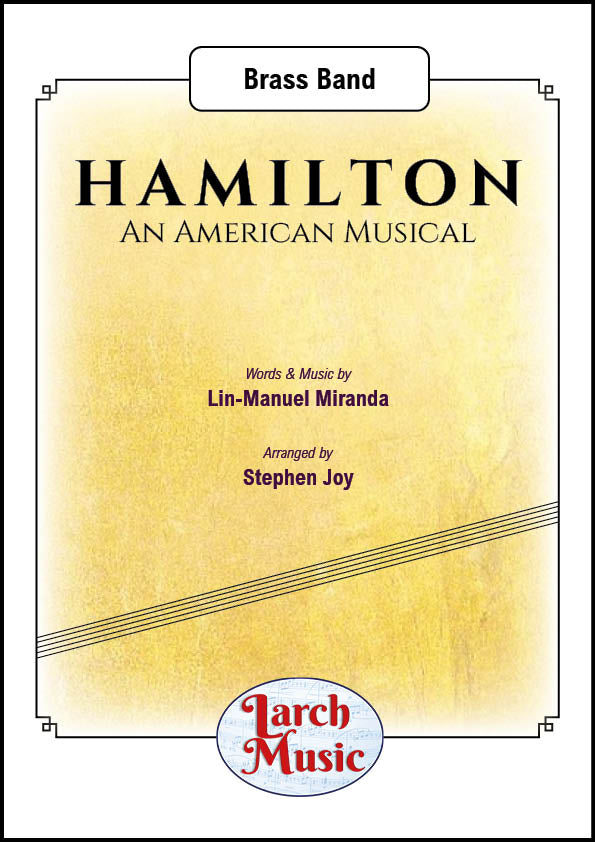 £30.00
£30.00Hamilton (An American Musical) - Brass Band - LM986
COMPOSER: Lin-Manuel MirandaARRANGER: Stephen JoyUK sales onlyThis arrangement is based on the popular Broadway musical.Hamilton: An American Musicalis asung-and-rapped-throughmusical byLin-Manuel Miranda. It tells the story of AmericanFounding FatherAlexander Hamilton.Miranda said he was inspired to write the musical after reading the 2004 biographyAlexander HamiltonbyRon Chernow. The show draws heavily fromhip hop, as well asR&B,pop,soul, andtraditional-style show tunes.It castsnon-whiteactors as the Founding Fathers and other historical figures.Miranda describedHamiltonas about "America then, as told by America now.A great sounding arrangement with complex rhythms and motifs.FEATURES THE FOLLOWING SONGSAlexander HamiltonHelplessHistory Has Its Eyes On YouThe Room Where It HappensThat Would Be EnoughYou'll Be BackAlexander Hamilton (Reprise)8 1/2 minutes of pure musical magicSorry UK sales onlyLM986 - ISMN : 9790570009862
In Stock: Estimated dispatch 3-5 working days
-
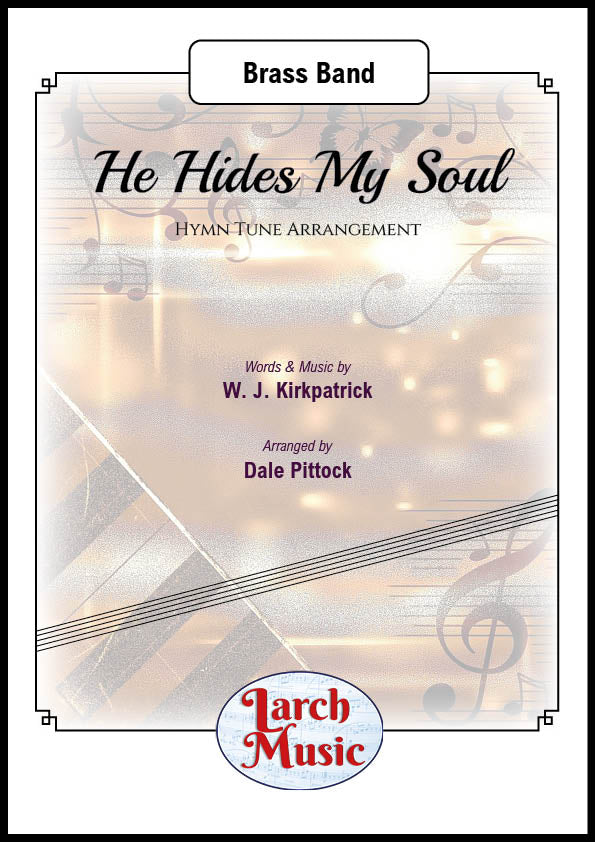 £30.00
£30.00He Hides My Soul - Brass Band Sheet Music Full Score & Parts - LM503
COMPOSER: W. J. KirkpatrickARRANGER: Dale PittockA wonderful new take on the Hymn Tune.LM503 - ISMN :9790570005031
In Stock: Estimated dispatch 3-5 working days
-
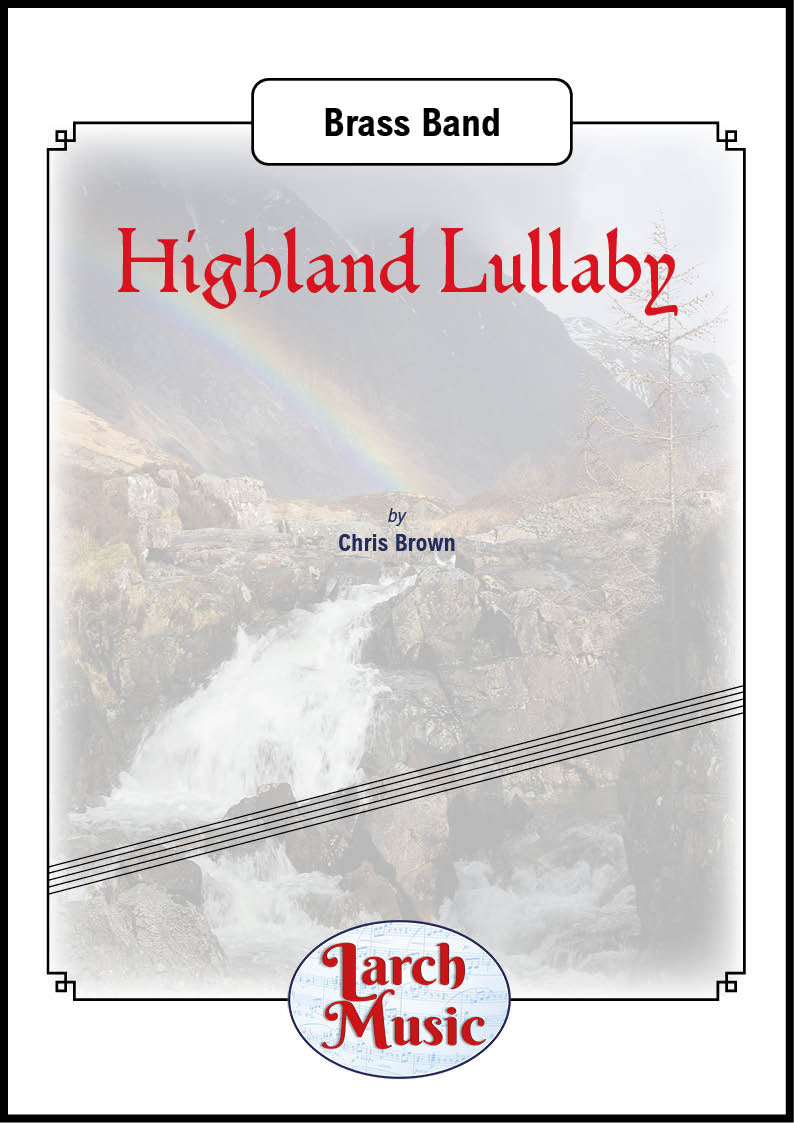 £25.00
£25.00Highland Lullaby - Brass Band - LM806
COMPOSER - Chris BrownDescriptive original composition from the pen of Chris BrownHighland Lullaby describes the views and moods of the Highlands of Scotland
In Stock: Estimated dispatch 3-5 working days
-
 £25.00
£25.00Hymn of Hope - Brass Band - LM819
COMPOSER: Samuel WebbeARRANGER: Derick KaneA brilliant hymnt tune arrangement on the tune "Earth has no sorrow that heaven cannot heal".Carefully arranged by Derick Kane with delicate scoring and use of timbre.
In Stock: Estimated dispatch 3-5 working days
-
 £31.00
£31.00I Will Talk and Hollywood Will Listen - Eb Tenor Horn & Brass Band - MM005
COMPOSER: Guy Chambers & Robbie WilliamsARRANGER: Tim MiddletonThis is a great arrangement of the Robbie Williams song from his popular album "Swing When You're Winning".Arranged as a Tenor Horn solo, this song is a perfect addition for entertainment concerts.
In Stock: Estimated dispatch 3-5 working days
-
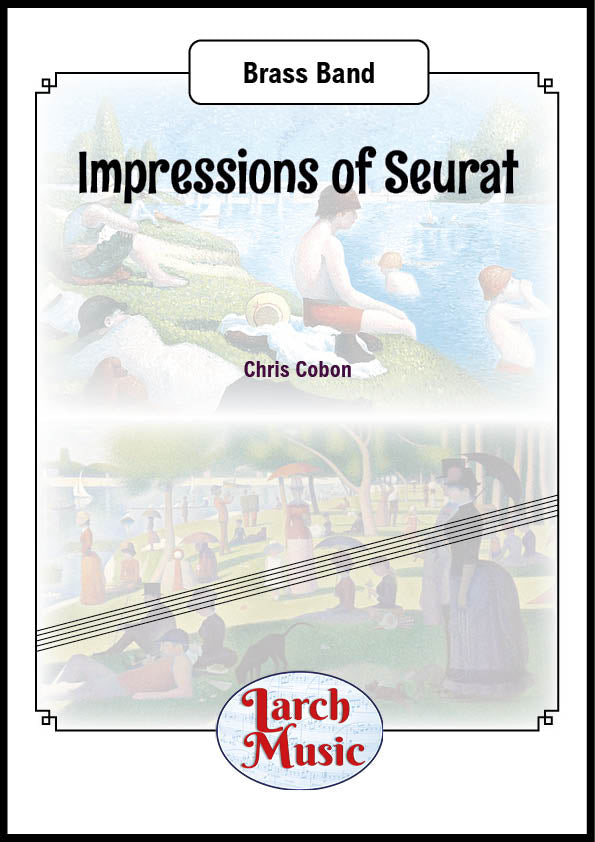 £90.00
£90.00Impressions of Seurat (Chris Cobon) - Brass Band Full Score and Parts - LM482 - Chris Cobon
COMPOSER: Chris Cobon1 - Stone breakersThe Suite opens with the only picture, of the five, which is not in the pointillist style. Several pictures were produced on the Stone Breaker theme, painted in oil on small panels called croquetons. The subjects in the art are breaking stones for use in road building. Musically the piece starts canonically alluding to the repetitive nature of the labour. A more direct, rhythmic link of three hammer blows, are first heard in the opening passages in the percussion. These hammer blows are also built into each third bar of the cannon and, therefore, become embedded into the opening section. Arising from the flurry of activity are two, three bar legato phrases in a majestic style until it falls to a more dramatic sounding of the legato phrase over a resounding of the cannon in a new textural order. This leads to a short, new section, featuring a trombone trio underneath rising scales in the cornet section.2: Bathers at AsnieresBathers at Asnieres was Seurat's first major painting...The canvas is of a suburban, Parisian riverside scene. Isolated figures, with their clothes, piled sculpturally on the riverbank, together with trees, austere boundary walls and buildings, and the River Seine are presented in a formal layout. This moment aims to capture the tranquillity of a summer's day in the park. This painting led the development of the pointillist technique whereby the colours were applied as small dots that combine to form a picture when viewed at a distance. The trombones capture this idea in the opening bars with their carillon-style entries. The 2nd/3rd cornets make a more direct link by individual picking out single notes of a melody being sounded on Baritones and trombones at C. The use of mutes adds a subtle darker side to this movement which nods to the industrial working-class aspects of the painting.3: White DogWhite Dog features a few characters relaxing in the sun, and a white dog with its tail held high. Having two dogs myself, I've taken the idea of an excited dog with a waggy tail as the basis for this short, middle, movement.4: Sunday Afternoonon the Island of La Grande Jatte Sunday Afternoon on the Island of La Grande Jatte is arguably Seurat's most famous work.5: Parade de CirqueCircus Sideshow Parade de Cirque encompasses a circus scene's boisterousness, vitality and chaos. However, the painting, constructed with the new pointillist technique, also portrays stillness, calmness and precision. As expected from looking at the picture, the trombone takes centre stage in various locations on either side of the calming circus waltz and pointillist section (I).LM482ISMN : 9790570004829
In Stock: Estimated dispatch 3-5 working days
-
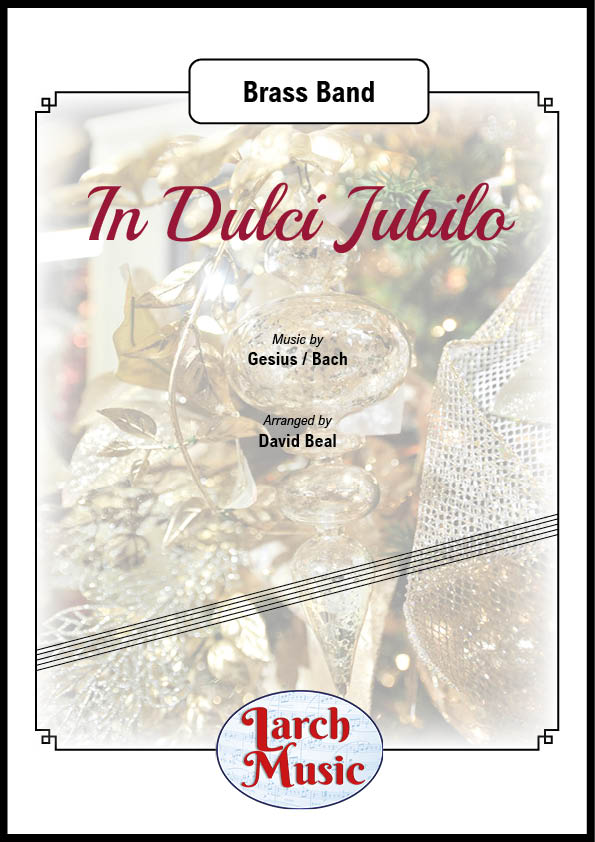 £30.00
£30.00In Dulci Jubilo (Gesius/Bach arr. by David Beal) - Brass Band Sheet Music Full Score & Parts - LM105 - Gesius / Bach
COMPOSER: Gesius / BachARRANGER: David BealA wonderful arrangement of this classic piece given a "through the ages" treatment. Starting with a nice ensemble version developing into a classic light rock version then moving into a Bach Choral harmonious style to a large vibrant ending.One for your Christmas concert.LM105 - ISMN : 9790570001057
In Stock: Estimated dispatch 3-5 working days
-
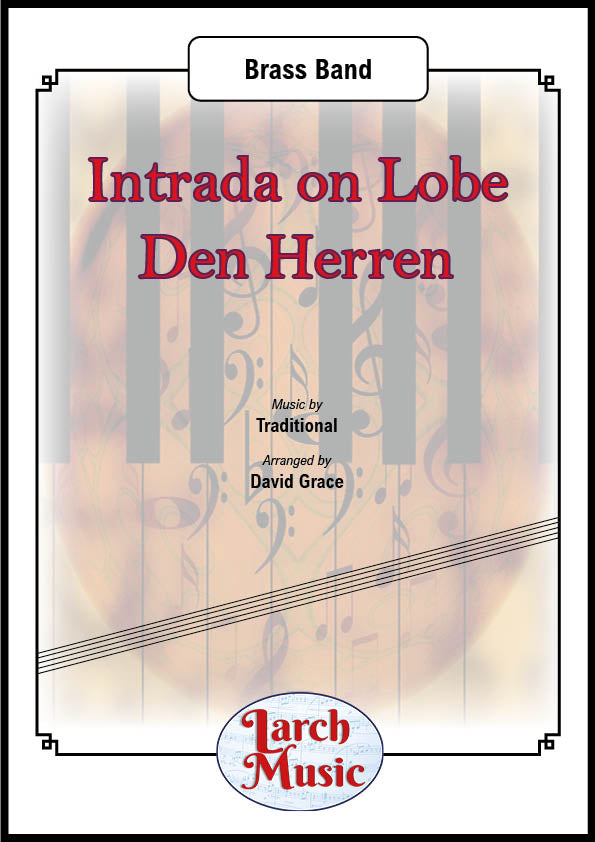 £30.00
£30.00Intrada on Lobe Den Herren (Traditional arr. by David Grace) - Brass Band Sheet Music Full Score & Parts - LM657
COMPOSER: TraditionalARRANGER: David Grace"Praise to the Lord, the Almighty" is a Christianhymnbased onJoachim Neander's German-language hymn "Lobe den Herren, den machtigen Konig der Ehren", published in 1680.John Julianin hisA Dictionary of Hymnologycalls the German original "a magnificent hymn of praise to God, perhaps the finest creation of its author, and of the first rank in its class."The melody used by Neander, first published in 1665, exists in many versions and is probably based on a folk tune.It is catalogued asZahn number1912c with several variants.The text paraphrasesPsalm 103andPsalm 150.Catherine Winkworthpublished her English translation of Neander's hymn in 1863.LM657 - ISMN : 9790570006571
In Stock: Estimated dispatch 3-5 working days
-
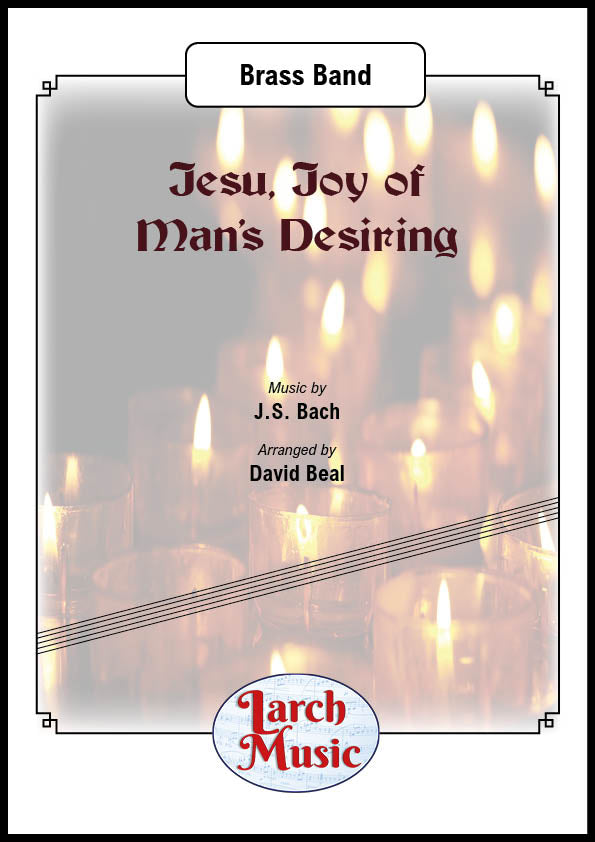 £25.00
£25.00Jesu. Joy of Man's Desiring (JS Bach arr. by David Beal) - Cornet Feature & Brass Band Full Score and Parts - LM028
COMPOSER: J.S. BachARRANGER: David BealFeatures all cornets in three choirs of 3 playersA great feature using carillion effect throughout
In Stock: Estimated dispatch 3-5 working days










